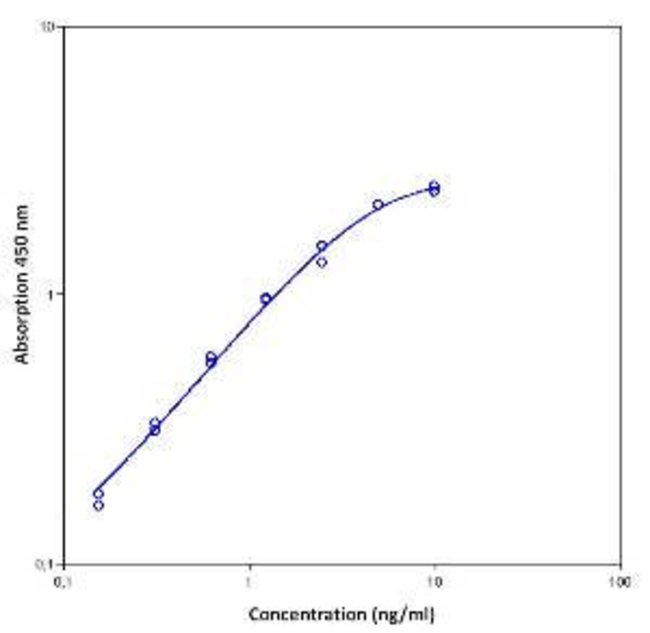PMN (Neutrophil) Elastase Human ELISA Kit, Sandwich ELISA Kit, Each

|
|
Details:
The Human PMN (Neutrophil) Elastase) ELISA quantitates Hu PMN (Neutrophil) Elastase in human plasma, exudate, bronchoalveolar lavage fluid, cerebrospinal fluid and seminal plasma, or cell culture medium. The assay will exclusively recognize both natural and recombinant PMN (Neutrophil) Elastase. Principle of the method The Human PMN (Neutrophil) Elastase solid-phase sandwich ELISA (enzyme-linked immunosorbent assay) is designed to measure the amount of the target bound between a matched antibody pair. A target-specific antibody has been pre-coated in the wells of the supplied microplate. Samples, standards, or controls are then added into these wells and bind to the immobilized (capture) antibody. The sandwich is formed by the addition of the second (detector) antibody, a substrate solution is added that reacts with the enzyme-antibody-target complex to produce measurable signal. The intensity of this signal is directly proportional to the concentration of target present in the original specimen. Rigorous validation Each manufactured lot of this ELISA kit is quality tested for criteria such as sensitivity, specificity, precision, and lot-to-lot consistency. See manual for more information on validation.Elastases form a subfamily of serine proteases that hydrolyze many proteins in addition to elastin. Humans have six elastase genes which encode the structurally similar proteins elastase 1, 2, 2A, 2B, 3A, and 3B. Elastase 2 hydrolyzes proteins within specialized neutrophil lysosomes, called azurophil granules, as well as proteins of the extracellular matrix following the protein's release from activated neutrophils. Elastase 2 may play a role in degenerative and inflammatory diseases by its proteolysis of collagen-IV and elastin of the extracellular matrix. This protein degrades the outer membrane protein A (OmpA) of E. coli as well as the virulence factors of such bacteria as Shigella, Salmonella and Yersinia. Mutations in this gene are associated with cyclic neutropenia and severe congenital neutropenia (SCN). This gene is clustered with other serine protease gene family members, azurocidin 1 and proteinase 3 genes, at chromosome 19pter. All 3 genes are expressed coordinately and their protein products are packaged together into azurophil granules during neutrophil differentiation.
Additional Information
| SKU | 1447043 |
|---|---|
| UOM | Each |
| UNSPSC | 41116158 |
| Manufacturer Part Number | BMS269 |
